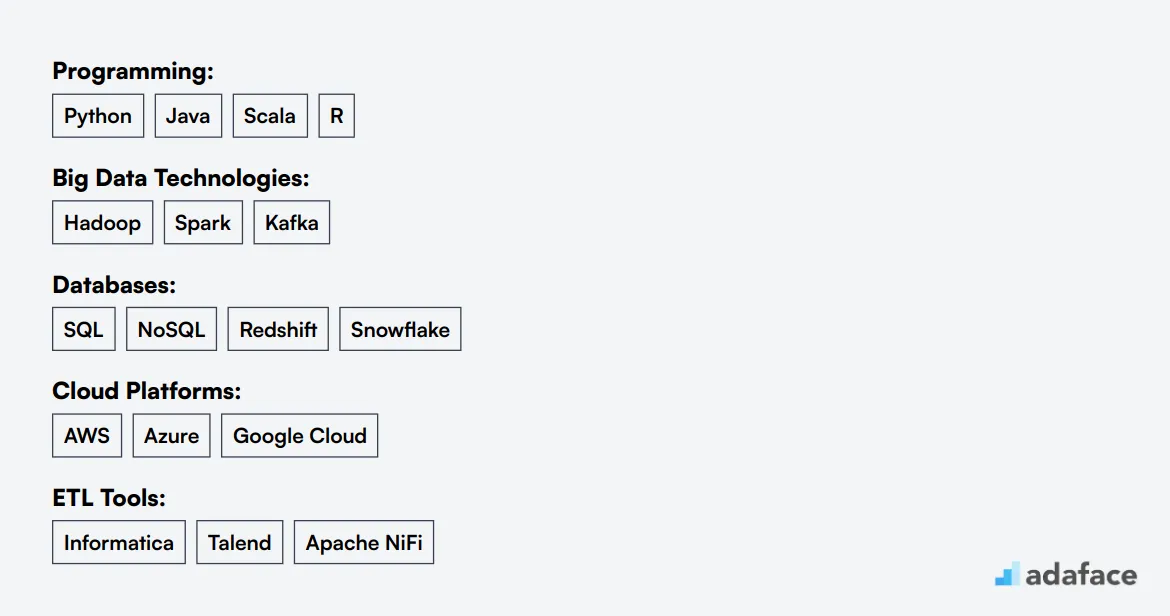Imagine if your morning coffee made itself, and your daily tasks completed on auto-pilot, freeing you for strategic thinking. Sounds dreamy, right? Enter AI, the new player in the data engineering field, promising to automate mundane tasks and transform industries like a magic wand. But does this mean data engineers are on the brink of extinction?
In this post, we explore how AI is reshaping the duties of data engineers, where it's lending a helping hand, and where it falls short. We'll delve into areas AI can automate, like coding and data cleaning, and discuss roles that remain human-dependent, such as nuanced decision-making and stakeholder interaction.
By the end of this read, you'll have a clearer picture of whether AI is a threat or ally to data engineers, and how professionals can adapt to this AI-infused landscape. Let's discover if AI will truly change the game or merely add new rules for data engineers to play by.
Table of contents
Data Engineers Speak: Is AI Friend or Foe?
The sentiment among data engineers regarding the rise of AI can best be described as a mix of curiosity and caution. Many professionals believe AI is more of a helpful tool than a job thief. According to Monte Carlo Data, while AI can automate tasks, it still relies on human oversight to ensure data quality, making data engineers as important as ever. This reliance highlights the evolving role of engineers, shifting from routine tasks to more complex problem-solving and system design.

Credits: Monte Carlo Data
Conversely, there are engineers who feel a tinge of apprehension. As AI takes on coding and data cleaning, there's concern about job security. However, this worry is somewhat alleviated by a LinkedIn post by Zach Wilson, which reveals projections of data engineering roles increasing from 500,000 to 1.25 million by 2030. Many believe that AI will create more opportunities rather than replace existing roles, fostering the need for engineers who can manage and integrate these AI capabilities into workflows.
What parts of Data Engineer is AI replacing?
AI is transforming the role of data engineers by taking over tasks that used to require significant manual effort. According to a Cognizant report, AI tools like GenBI are automating the creation of optimized SQL code from natural language queries, which reduces the backlog of ad hoc requests and allows data engineers to focus more on strategic-level tasks.
In the domain of ETL processes, AI is making a substantial impact. A technical review highlights areas where AI is enhancing data pipelines: from intelligent data extraction using natural language processing to advanced anomaly detection systems that ensure data quality. This automation streamlines data workflows and reduces the need for manual oversight.
Despite these advancements, the role of data engineers is not obsolete, but evolving. AI is facilitating a shift by freeing engineers to engage in more creative and strategic work, such as designing data architecture and ensuring data governance, as highlighted by Cognizant. Data engineers now find themselves as central figures in leveraging AI systems to enhance business operations.
What Parts of Data Engineer AI Cannot Replace
Data engineers are invaluable in ensuring data readiness, a task AI cannot tackle alone. According to TDWI, while AI can speed up data preparation, the expertise of data engineers is still necessary to ensure data quality before it reaches AI processes. Their skills in handling anomalies and understanding historical nuances in data make them irreplaceable.
AI may be able to assist data engineers, but it struggles with understanding the unique needs of a business. As noted on Quora, data engineers use their domain knowledge to design systems that align with organizational goals, which is a nuanced task beyond AI's reach. Furthermore, their ability to communicate and collaborate with stakeholders is a human quality that AI cannot replicate.
The creative application of technical skills is another area where data engineers shine. An article from TDWI highlights that data engineers use their experience-driven insights to creatively solve complex problems, a trait AI lacks. This human intuition is crucial for navigating the messy reality of real-world data.
How Data Engineers Can Adapt in the AI Era
As AI technologies continue to grow, the role of the Data Engineer is evolving from simply processing data for analysts to creating and managing datasets specifically tailored for AI systems. This shift is crucial because AI systems are only as effective as the data they consume. According to Zach Wilson, the future involves feeding high-quality, secure data into AI, particularly as companies remain cautious about sharing sensitive information openly.

Credits: LinkedIn
To thrive in this evolving landscape, Data Engineers should focus on several key areas. Understanding AI Fundamentals, as Wilson suggests, is imperative for aligning data engineering practices with AI needs. Additionally, mastering Data Quality Management techniques ensures the data is clean and usable for AI applications. Staying updated on the latest tools that facilitate AI integration, like those mentioned in Wilson's free boot camp, can equip Data Engineers with the skills needed to remain relevant.
Data Engineer Hiring Trends in the US
The demand for data engineers in the U.S. is experiencing significant growth. According to LinkedIn, there is a projected 50% year-over-year increase in demand, making data engineering one of the fastest-growing tech occupations. A recent report by Motion Recruitment indicates that approximately 150,000 professionals are currently employed, with more than 20,000 new hires in the past year.
As organizations increasingly rely on data-driven decision-making, the range of skills required for data engineers is expanding. Proficiency in SQL, Python, and big data frameworks like Spark and Hadoop are highly sought after, according to a report by ElectroIQ. Additionally, a focus on cloud skills related to platforms such as AWS and Azure is becoming critical as organizations move towards cloud-based architectures.
Data engineering salaries are on the rise, with the median salary reported to be around $145,000, according to Prepare.sh. This trend is consistent with the increasing complexity of the role and the high demand for specialized skills. As more businesses invest in AI and analytics, data engineers are poised to continue being a key part of tech teams across various industries.
Is Data Engineer AI safe?
The role of data engineers is not at risk from AI replacement, as many experts believe AI serves as a tool rather than a substitute. According to Monte Carlo Data, while AI can automate repetitive tasks like code generation and data cleaning, it still requires human oversight to ensure data quality. This means data engineers will remain crucial for managing data systems, translating complex business requirements, and solving intricate problems that AI cannot tackle alone.

Credits: Monte Carlo Data
Moreover, the demand for data engineers is expected to grow. The Bureau of Labor Statistics projects a 21% increase in data-related job growth over the next decade, indicating that as companies continue to adopt AI and big data solutions, the expertise of data engineers will be more valuable than ever. They are instrumental in creating robust data pipelines that feed AI systems with the clean and structured data they require, thus solidifying their relevance in the evolving job market.
Hiring Data Engineers? Here's What to Look For
Hiring a Data Engineer today involves more than just SQL and Python. Look for candidates who understand how to build and maintain data pipelines, manage cloud platforms like AWS or Azure, and possess programming skills in languages such as Python or Java. Critically, seek those with new-age AI skills, including integrating machine learning into data workflows and understanding prompt engineering for AI models, as the field shifts towards more autonomous systems.

Credits: Adaface
To streamline your hiring, Adaface tests give you an objective way to screen candidates. Our Data Engineer Test assesses core skills like data modeling and ETL, cutting down on interview overhead. For AI readiness, Adaface offers specific assessments: the Prompt Engineering Test gauges their ability to interact with AI models, and the Generative AI Test checks their grasp of AI solutions.
Prompt Engineering Test
Generative AI Test
Data Engineer Test
Embracing the Future: AI and the Evolving Data Engineer
The infusion of AI into data engineering is not about job loss; it's about transformation and growth. As highlighted in TDWI, AI is creating opportunities for data engineers to focus on strategic, high-impact tasks. Think of it this way: instead of getting bogged down by tedious coding, you can now design smarter data systems that align with business goals. The future is about collaboration between AI and human ingenuity!

Credits: Khushbu Shah
For those hiring data engineers, the landscape is bright. The demand for skilled professionals is on the rise, with roles projected to double in the coming years as companies embrace AI-driven data solutions. This creates a unique opportunity to attract talented engineers who are eager to innovate and drive change in their organizations. Embracing these advancements means not just filling positions, but building teams ready to harness the full potential of AI in data workflows. Remember, the evolution of this role means more creativity, more strategy, and more impact!
As we look ahead, it's exciting to envision a world where data engineers thrive in their roles, combining their unique human skills with the power of AI. The focus will shift from routine tasks to driving innovation, crafting robust data strategies, and collaborating across teams. So, let’s embrace the future together—where data engineers are not replaced, but empowered to achieve even greater heights!

40 min skill tests.
No trick questions.
Accurate shortlisting.
We make it easy for you to find the best candidates in your pipeline with a 40 min skills test.
Try for freeRelated posts



